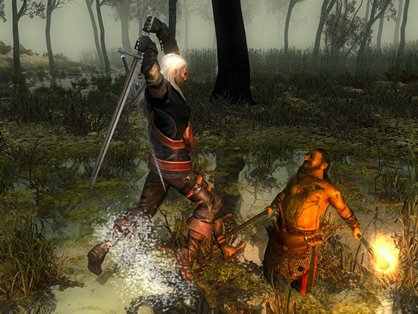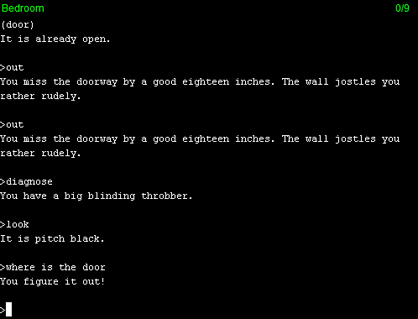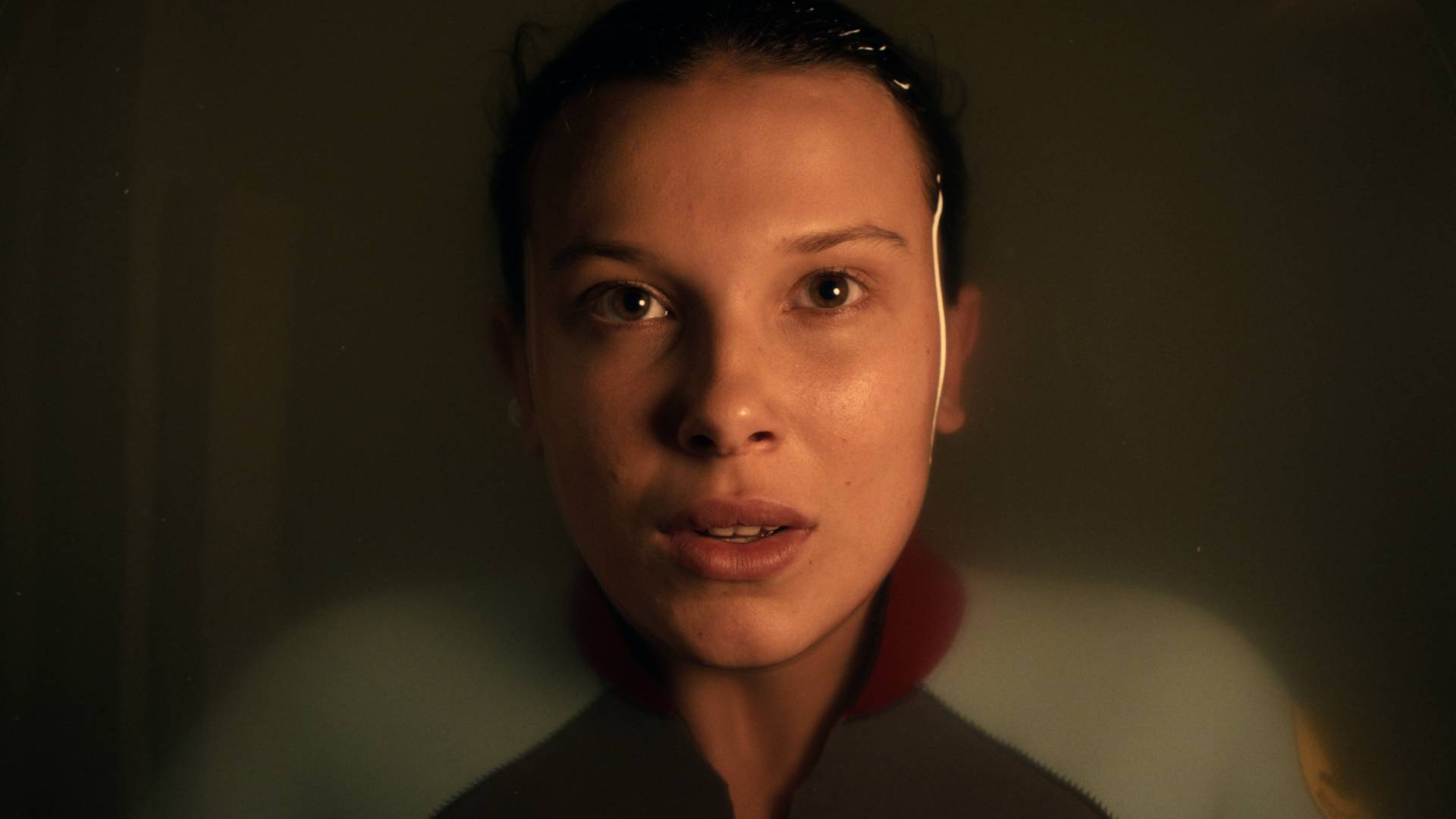The Top 7… Games based on books
The written word, made more betterer by gamification
The basic gist of The Witcher – you’re a super-powered monster hunter for hire named Geralt and you have amnesia – sounds totally unremarkable, but it’s the world the protagonist lives in and the difficult choices he faces that make The Witcher compelling.
While it’s pretty standard these days for action-RPGs to have good/evil decisions that affect the gameplay to varying degrees, the choices in the The Witcher aren’t as obviously black and white. Since options are purposely not delineated into moral categories, you’re forced to think more naturally in terms of actions and consequences. To absolutely ensure you’re actually thinking about your decisions, a lot of the consequences are time-delayed and layered so that there’s no way you can rely on saving and reloading to undo the repercussions of a choice you made.

Above: If Geralt “The White Wolf” of Rivia were a real person, he would either be best friends withChris Dane Owensor fight him to the death
How faithful is it to the book series? Both the books and the game center on Witcher Geralt. Both also explore the ambiguity of morality, and the idea that a character can seemingly be good in some aspects of his life and evil in others. It’s hard to get into specifics though since as of this writing only one Witcher-related book is available in our native English. Terrible! Here’s hoping the rest of the series gets a translation soon.
4) The Hitchhiker%26rsquo;s Guide to theGalaxy (1984)
Based on: The Hitchhiker’s Guide to the Galaxy by Douglas Adams (1979)
This charming piece of interactive fiction boasts the distinction of being the only game on the list that was actually designed by the author of the book it’s based on. While the Hitchhiker’s Guide novel is known for its humor, the Hitchhiker’s text adventure twists that same humor into unrelenting mockery of the player through sadistic deviousness.

Above: The fact that this game was such a big hit probably says something about the psychology of Douglas Adams fans
Weekly digests, tales from the communities you love, and more
The most famous example of HHGTTG’s fiendishness is the Babel Fish Dispenser puzzle, which involves obtaining a fish from a vending machine (which subsequently flies across the room into a hole, etc etc). Not only is it completely illogical and impossible to solve rationally, but to solve it properly you needed to have picked up a pile of junk mail from your house near the start of the game which by the time you got to the Babel Fish puzzle would have been destroyed if you hadn’t already picked it up. Oh, and if you didn’t solve the puzzle in the specific way you were “supposed” to? You’ve permanently rendered your game unwinnable. But you won’t get any indication of that until you get to the end. Yeah. The Hitchhiker’s game has so many (read: several) instances of completely random irrational ways to render your game unwinnable that it appears in the Wikipedia entry for the term “unwinnable.”
How faithful is it to the novel? The game begins in the same way as the book, with protagonist Arthur Dent at his home just before the total destruction of Earth. After that, the two widely diverge, making the game still incredibly difficult even for fans of the novel.
You can play the BBC Radio 4’s 20th anniversary edition of the gamehere, or play the original version on Douglas Adams’swebsite.
3) Parasite Eve (1998)
Based on: Parasite Eve by Hideaki Sena (1995)
The plot of Square’s action-RPG Parasite Eve is so out of control crazy that you probably would never guess it was based on a book (unless you already knew, in which case you wouldn’t guess anyway, you would know). Basically, evil mitochondria take over the bodies of people and animals and turn them into grotesque monsters that only one badass rookie NYPD cop can take down.
The artistry of design for each of the mitochondrial mutants and the sheer amount of crazy shit that happens in the Parasite Eve game totally stand on their own merits and originality, yet still perfectly complement the disturbing medical horror of the original book. Add a beautifully eerie soundtrack by Yoko Shimomura and you have a game that truly holds up as worthy of the literature it’s based on.
Above: A gigantic fetus blows up some ships. Yes!!
How faithful is it to the novel? While the Parasite Eve videogame is actually supposed to be a sequel to the novel, both plots boil down the same way: a sentient being made of mitochondria named Eve tries to overthrow her human hosts and create an ultimate being that will make humans obsolete. She has two powers: spontaneous combustion and goo.



